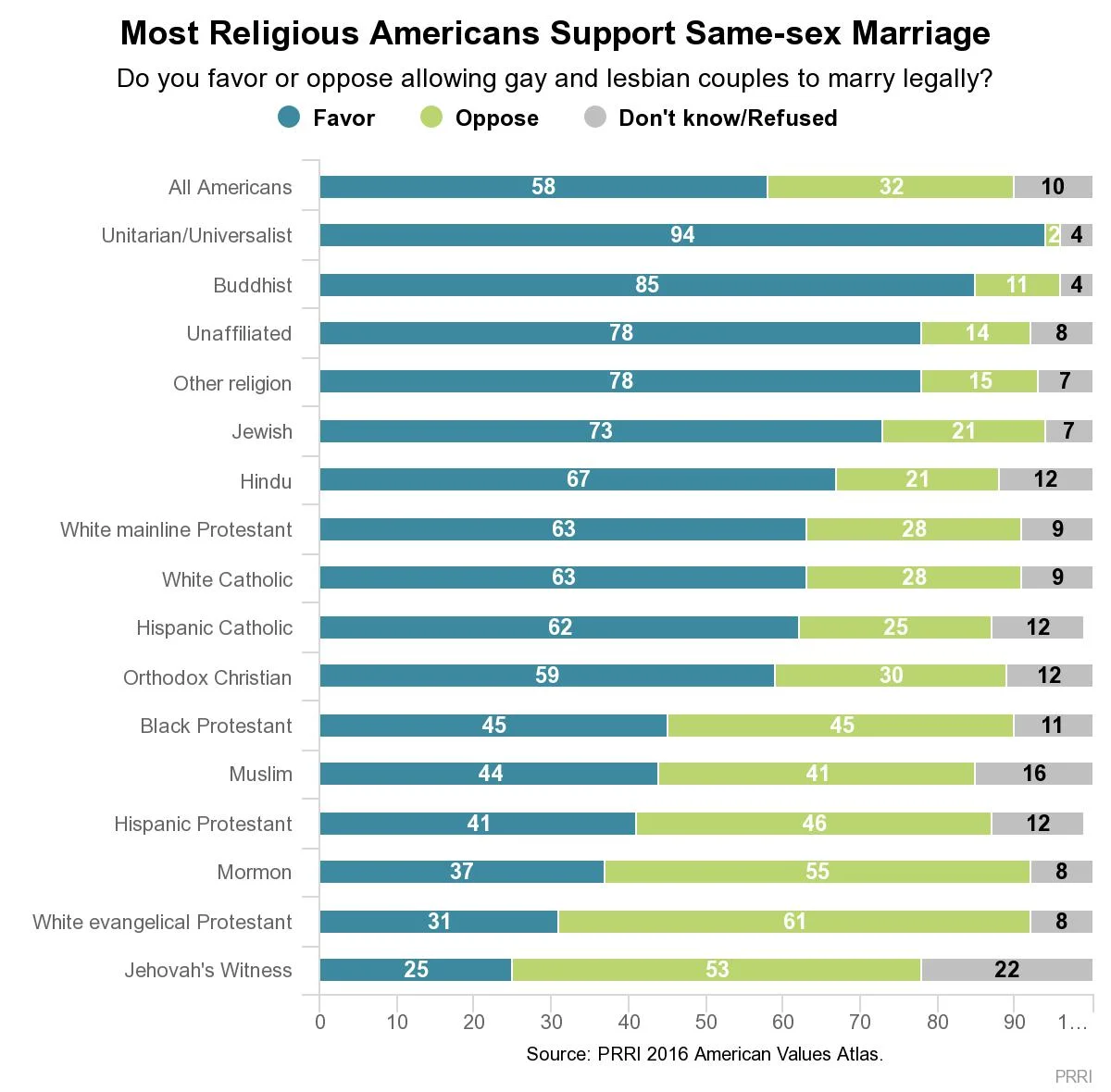Growing Support for Same Sex Marriage Evident After Legalization By Luke Perry
One debate within scholarship on politics and religion is the extent to which civil law has impacted opinions on whether gays and lesbians should be able to marry, particularly among religious people. Research for my forthcoming book (Religious Responses to Marriage Equality, Routledge, 2018) has found that religious leaders reported increased acceptance and less dispute over the issue of same sex marriage in states where it was legal, particularly when it was legal for years. Recent national polling seems to suggest this may be playing out nationally since Obergefell v. Hodges (2015) recognized a constitutional right for gays and lesbians to marry.
“Two years after the Supreme Court decision that required states to recognize same-sex marriages nationwide, support for allowing gays and lesbians to marry legally is at its highest point in over 20 years.” Support grew overall among religious people and within many specific religious denominations. This is part of a longer trend dating back to 2011, where support for same sex marriage has risen and opposition has declined.
In 2017 a majority of religious Americans supported the legal right for gays and lesbians to marry. 1 in 3 were opposed. Approval of among religious Americans was 5 points higher than in 2015. Approval rose within many religious groups. Gains were highest among religious groups who as a whole do not support legalizing same sex marriage, including Jehovah Witnesses (+14), Mormons (+11), and Black Protestants (+7).
Unitarian-Universalists and Buddhists most strongly supported marriage equality. Over 70 percent of Jews and 60 percent of Hindus were supportive as well. Interestingly, three out of the four most supportive American religious groups were not Christian. Part of this likely has to do with theology, while part likely relates to concerns about minority rights.
Sizeable majorities of White Mainline Protestants, White Catholics, Hispanic Catholics, Orthodox Christians also supported same gender marriage. Black Protestants, Hispanic Protestants and Muslims were pretty evenly divided on the issue, while majorities of Mormons, White Evangelical Protestants, and Jehovah Witnesses opposed same sex marriage.
Increased acceptance of same gender marriage has not been confined to religious groups. In 2017 a majority of Republicans supported same sex marriage for the first time. This is remarkable considering that as recently as 2013, Republicans opposed same sex marriage by a margin of two to one.
Same gender marriage now has widespread support across age groups and racial and ethnic groups. Overwhelmingly majorities of Millenials and Generation Xers support same sex marriage, as well as a majority of Baby Boomers, for the first time as of this year. Over 60 percent of white and Hispanic Americans support same sex marriage, as well as a slight majority of African-Americans.
The Obergefell ruling was not the cause of growing public support for marriage equality, but legalization nationally was not a hindrance, and may be positively contributing to increased support.
Luke Perry (@PolSciLukePerry) is Chair and Professor of Government at Utica College.








